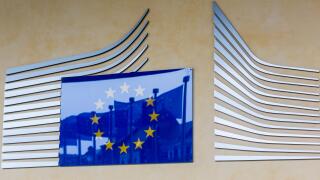Sterling
-
The first batch of European corporate earnings have shown multi-year weaknesses
-
Tightly trading bonds look ripe to gap wider as conditions expected to deteriorate
-
Investors forced to accept deals priced close to secondary curve as supply dwindles
-
Borrowers push out maturities, printing bigger size across conventional and labelled deals
-
Central bank money is gone and rising rates are hacking at corporate credit quality
-
UK achieves second largest order book ever for linker sale
-
Issuer has already been active in the currenty earlier in the year
-
Long-dated bonds to be tapped and issued, Greece mounts tender offer
-
Bondholders are happier despite the utility not securing the £1bn it said it needs
-
Arbitrage lures issuers amid volatile backdrop
-
Issuance boost for currency as supra joins CPPIB in issuing £1bn
-
◆ Over 90bp of pick-up offered over larger building society peers ◆ Investors presented a wide range of comps for inaugural sale












